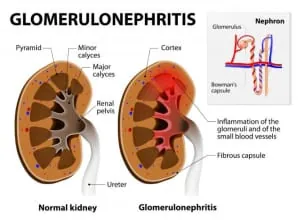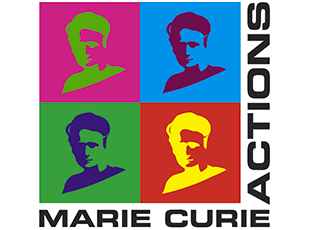Kidney disease multifunctional diagnosis by multiplex qPCR: Multidet
The MULTIDET project, aiming to develop a kidney disease diagnosis tool, is supported by INNOSUP-02-2016 program, in the context of European SME innovation associate action.
This project is completed now. If interested, feel free to contact us.
Kidney disease diagnosis by qPCR: introduction

Chronic kidney disease (CKD) affects 10% of the population worldwide, and sporadic cases of acute nephritis, if not detected early enough, may also progress to a chronic form.
In particular, glomerulonephritis (GN) represents the leading cause of chronic renal failure (25%).
GN comprises several kidney diseases, mainly characterized by inflammation of the glomeruli, which are the units involved in filtration or the small blood vessels surrounding the kidneys.
As it is not strictly a single pathology, its presentation depends on the specific disease, and rapid and accurate diagnosis is crucial because the outcome and treatment differ in different conditions.
Despite several cheap traditional tests based on the analysis of urinal and blood samples, no technology is currently available to measure DNA biomarkers associated with infective GN simultaneously and perform immunological and cytological analyses.
Kidney disease diagnosis by qPCR: project description
The development of fast multiplex quantitative PCR (qPCR) technologies offers a unique opportunity to propose a Point of Care Test (PoCT) to perform new multifunctional cheap diagnostics of chronic kidney disease.
One of our main R&D projects was FASTGENE, the technology at the heart of the MULTIDET project. FASTGENE is a microscopic optofluidic chip whose temperature is controlled by a microthermal exchanger and can carry out ultrafast qPCR, conserving yield, sensitivity, and selectivity of the gold standard qPCR.
Within the MULTIDET project, we aim to develop and optimize multiplex ultrafast qPCR for diagnosing bacterial GN from urine samples, determining microorganisms’ identity and pattern of resistance/susceptibility to antibiotics.
Moreover, the possibility of performing an integrated analysis of immunological and cellular biomarkers will allow for the differential diagnosis of infective and non-infective GN.
This project has received funding from the European Union’s Horizon 2020 research and innovation programme under grant agreement No 739688 (Multidet project).

